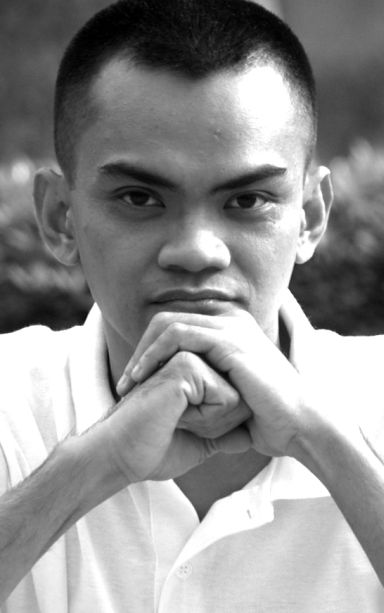
PAREDES
As I write this today, December 10, the world celebrates International Human Rights Day. It commemorates the adoption by the United Nations General Assembly of the Universal Declaration of Human Rights on this day in 1948, a document signed by 48 countries including the Philippines.
The UN Declaration is actually the culmination of centuries of struggle to uphold the idea of human rights as inherent and inalienable in each of us, regardless of race, nationality, class, gender or age. Great cultures and religions have contributed to the development of this idea, proof that it has long permeated the history of human civilization.
We recall, for example, how the Buddha taught compassion for all and the wisdom of the golden rule. The ancient Greek philosophers, on the other hand, thought of reason as the seat of the human soul and thus suggesting a common basis of human nature or what it takes to be human. Indeed, for Aristotle, what defines the human animal is our rationality.
Early Christianity reflected the classical idea holding that it is God who is the source of this intellect and dignity and that every person, even the least among us and those we consider to be enemies, deserve to be loved as we love ourselves. Such a radical idea contrasted with the pagan Roman notion that people from barbarian races are no different from animals and thus do not deserve the slightest compassion. Thus, the citizens of Rome could afford to delight at the public spectacle of bloody gladiator fights or the executions of Christians who were then waging an underground revolution of universal love.
The French Revolution destroyed the old feudal system based on the belief that some people are blessed with the “divine right” to rule while the masses are destined for serfdom by mere birth. They founded a new democratic
society based on solidarity, liberty and equality. Inspired by the French example, the Americans also established a democratic nation and adopted their own declaration of the Bill of Rights.
As empires crumbled in the wake of the First World War in the early decades of the 20th century, many nations began adopting the liberal democratic model. But in the crisis that ensued as a consequence of the First World War, fascist demagogues took advantage of democratic space to destroy democracy itself. The charismatic Adolf Hitler rose to power by organizing a popular movement of fanatics who were attracted to his attack against the Jewish people as a toxic race that needed to be exterminated to pave the way for superior Aryan race as the new harbinger of civilization.
The Second World War was therefore fought to defend not only the Jews but universal rights in general against rising the global spread of racism and fascism. Thus, fresh from the trauma of the Holocaust and the mass slaughter that came as a consequence of a global war, the United Nations was founded in 1945 with member nations coming together to commit themselves to the promotion of peace, economic cooperation and human rights.
Three years later, it adopted the Universal Declaration of Human Rights and mandated member nations to uphold and enforce it in their own countries. The Philippines had long been an early advocate of universal rights, having had our own version of the Bill of Rights since the 1935 Constitution. But we saw our own dark years when then President Ferdinand Marcos declared Martial Law in 1972, lifting the privilege of the writ of habeas corpus, and suspending freedom of the press, the right to public assembly and other basic civil liberties. He dissolved the Congress, appointed puppets in the Supreme Court and extended his term until a People Power Revolution ended his dictatorship in 1986. The Cory Aquino administration restored democracy and adopted a new Constitution that upholds universal human rights.
Today, the Philippines is on the limelight again as President Rodrigo Duterte’s bloody campaign against drugs has cost the lives of thousands, some of them the result of extrajudicial killings. Irked by critics that included international human rights groups and the United Nations itself, the President merely responded with the usual expletives and even declared during his inaugural speech that he would not let human rights become a hindrance to the drug war.
He declared admiration of Hitler, Vladimir Putin, Donald Trump and Ferdinand Marcos and even allowed the latter’s burial in the Libingan ng mga Bayani. He expressed interest in the idea of suspending the writ of habeas corpus purportedly to help defeat the drug lords and terrorists. He has since been attacking the media, the human rights groups, the church and the civil society organizations that have traditionally been defending civil liberties.
Recently, the Congress, consisting of a “supermajority” of turncoats and diehard Duterte supporters, has approved the return of the death penalty, another campaign promise. And, on the pretext of shifting to a federal form of government, the President has called for the start of deliberations for charter change.
We do not know yet what this new constitution will be like. What is certain is that this new administration do not seem to appreciate the idea of rights for all. In fact, the President himself has said many times that some people don’t deserve human rights. Criminals, he said before a cheering crowd for instance, are nothing but animals and deserve to be killed.
How fast, indeed, we have changed as a nation that claims to be Christian or as human beings.
Disclaimer: The comments uploaded on this site do not necessarily represent or reflect the views of management and owner of Cebudailynews. We reserve the right to exclude comments that we deem to be inconsistent with our editorial standards.




